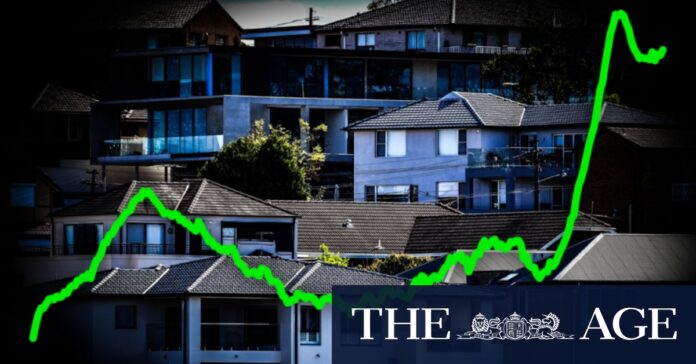[ad_1]
She said property price growth lately has been softer and house values are likely to fall more than units in the coming months which would slightly reduce the gap.
“But long term, this seems to be a trend that isn’t going anywhere.”

The gap between house and unit values has widened.Credit: Sam Mooy
She said although there can be advantages to apartment living such as better locations and less maintenance, a detached house with a backyard is increasingly out of reach, especially for first home buyers but also for older families.
“It is another aspect of inequality in our housing market because the detached house and land is going to accrue more value than units over time,” she said.
“If you can get into the more expensive asset, you’re also going to gain more in the value of that asset over time and that advantage has only been amplified through the COVID period.”
Loading
Westpac senior economist Matthew Hassan said while demand for home office space had increased, there was some caution about buying in newer-style apartment buildings.
Headlines about cladding and build-quality issues had made some buyers wary, although there had been progress in remediation and better transparency around build quality more recently.
Getting into a detached house had become a stretch, he said.
“In some markets, it’s a very hard stretch and you’d say for many it’s probably not achievable,” he said.
“The Australian dream may have been three bedrooms and a backyard … We’re still seeing a few first home buyers around. It requires a bit of assistance these days to achieve this dream.”
He said a push by state governments in NSW and Victoria for more medium-density homes in middle-ring suburbs could be an in-between solution, but it would take time.
BresicWhitney chief executive Thomas McGlynn said often house buyers have larger budgets and are willing to pay more to secure a property compared with apartment buyers.
Some house buyers have previously owned houses that have increased in value, boosting their budget to spend at auction.
Loading
“In particular areas, if you’ve had a lot of time in the market and you’ve owned a property for a long period of time, you are making decisions to purchase a property first on your lifestyle, then on your budget,” he said.
“Some of these families, not all but I’d say a large percentage of them, are double-income households.”
He said family homes are often tightly held and are in low supply compared with demand, whereas demand for apartments has not been so strong.
The Agency’s chief executive of real estate Matt Lahood said first home buyers had been affected by rising interest rates, while many house buyers had owned property before and were less affected, helping to maintain the gap between more expensive and cheaper types of property.
“Pre-COVID, they [house buyers] were already in the market and they had huge [capital] growth post-COVID, so the interest rates are not so much affecting that end of the market,” he said.
“It could be a combination of working from home but also this rapid [capital] growth we’ve seen.”
[ad_2]
Source link


